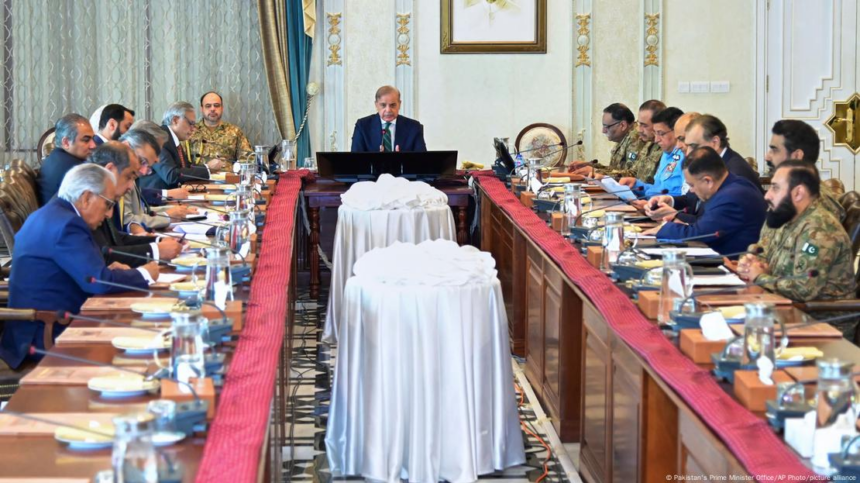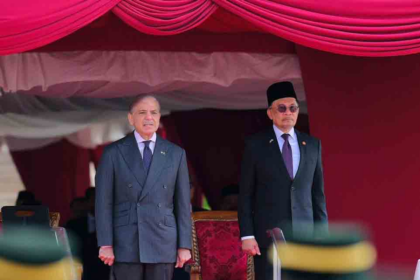RASC News Agency: In the aftermath of a dramatic escalation in cross-border hostilities between India and Pakistan, Prime Minister Shehbaz Sharif has convened an emergency meeting of Pakistan’s National Command Authority (NCA) the country’s highest decision-making body on strategic and nuclear affairs. This high-level session is expected to weigh critical security decisions that could significantly influence the regional balance of power. The National Command Authority, which oversees Pakistan’s nuclear arsenal and key military strategies, plays a pivotal role in shaping the country’s response to military threats and diplomatic crises. The urgency of this meeting underscores growing concerns over the rapidly intensifying conflict with India, following mutual airstrikes on strategic military targets.
On Saturday, May 10, the Pakistan Army announced that it had launched retaliatory strikes on multiple Indian military installations. These included the BrahMos missile site, Pathankot Air Base, and the Udhampur Air Force Station. The military described the attacks as a direct response to Indian airstrikes earlier that same day. According to Indian defense sources, the Indian Armed Forces had conducted pre-emptive missile strikes at three Pakistani airbases one located near the capital Islamabad. India justified its actions as part of a broader strategy to neutralize imminent security threats allegedly emanating from across the border.
The rapidly evolving military confrontation has raised alarms not only in South Asia but across the international community. With both countries possessing nuclear capabilities and a long history of armed conflict particularly over the disputed territory of Kashmir the stakes of further escalation are dangerously high. The NCA, chaired by Prime Minister Sharif, now bears the weight of steering Pakistan through this volatile juncture. Its decisions could range from conventional military responses to intensified diplomatic maneuvers or even calibrated nuclear signaling. Each of these options carries far-reaching consequences for regional stability and global security.
As tensions deepen, calls are growing for immediate international intervention. The United Nations, along with major global powers including the United States, China, and Russia, is expected to exert diplomatic pressure on both Islamabad and New Delhi to pursue de-escalation. Yet, so far, neither government has formally indicated readiness to enter peace negotiations or activate crisis communication mechanisms. This diplomatic silence has only heightened fears of further miscalculation, particularly given the speed and intensity of the current military exchanges.
The tit-for-tat airstrikes near sensitive border regions reflect not just tactical military decisions but also the broader instability that continues to define India-Pakistan relations. With deeply entrenched political rivalries and unresolved territorial disputes, both nations now stand on the brink of another prolonged and potentially devastating conflict. Analysts warn that absent immediate dialogue and trust-building measures, the region risks descending into a full-blown war one that could destabilize not only South Asia but the entire international order.
In this precarious moment, the imperative for diplomatic engagement cannot be overstated. The activation of military hotlines, third-party mediation, and a resumption of back channel negotiations are urgently needed to avert further escalation. While both sides claim to be acting in national self-defense, the current trajectory threatens to spiral into a humanitarian and geopolitical crisis. The international community must act swiftly and decisively to ensure that restraint, not retaliation, defines the next steps in this unfolding crisis.






